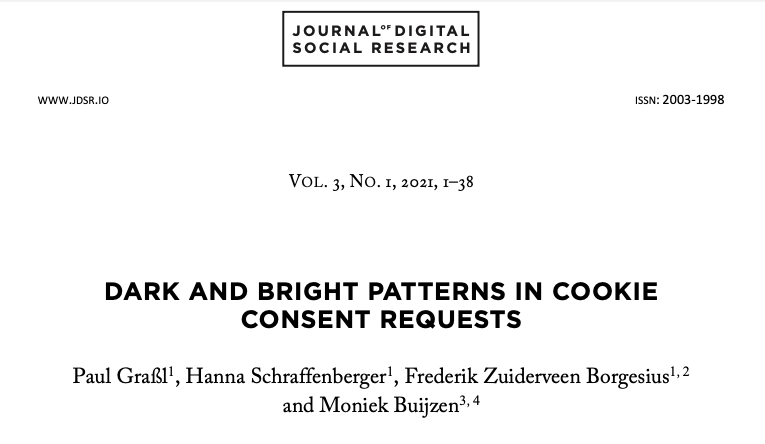Dark and bright patterns in cookie consent requests
There is a trend towards persuasive interface designs (called dark patterns) which push (or nudge) users towards agreeing to online tracking.
Consent requests represent currently the main regulatory mechanism through which people can control the processing of their personal data online. While the General Data Protection Regulation (GDPR) of the EU requires consent to be informed and freely given, there is a trend towards persuasive interface designs (called dark patterns) which push (or nudge) users towards agreeing to f.e. online tracking. In a first step, this project investigated in the context of cookie consent requests what effects these dark patterns have on the decision that people make as well as on their perception of control over their personal data. In a second step, we reversed the design patterns (which we term bright patterns) to see how peoples’ behaviour changes when nudged towards privacy-friendly option (disagreeing to online tracking). The study can be found at: https://jdsr.se/ojs/index.php/jdsr/article/view/54

research lines
- privacy & security
- autonomy & freedom

